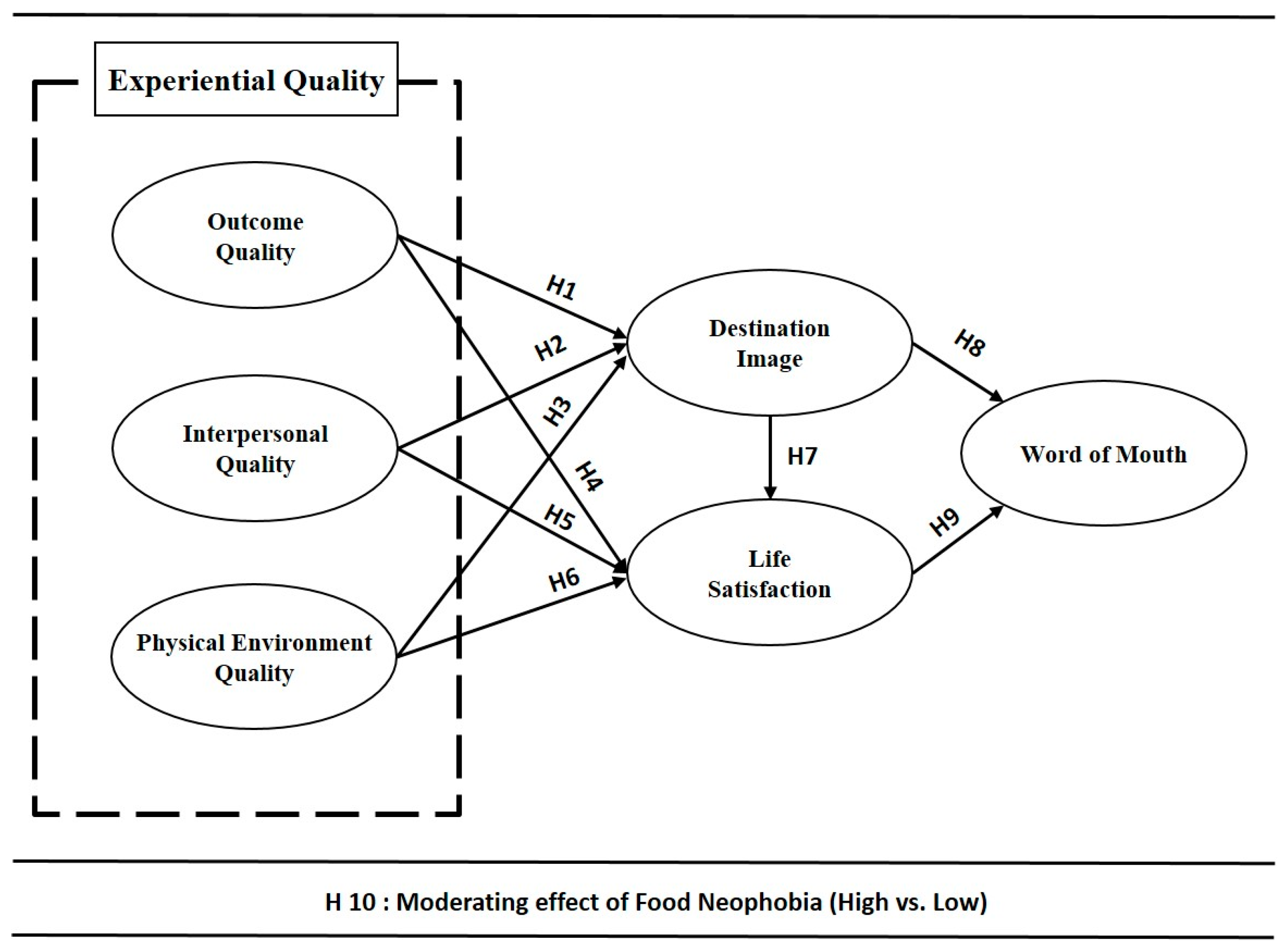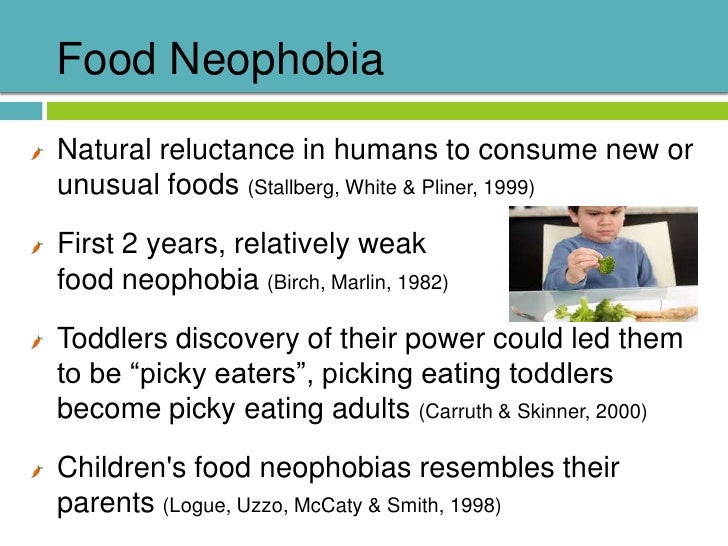Food Neophobia
Food neophobia ist erblich.

Food neophobia. Food neophobia refers to the reluctance to eat or the avoidance of new foods is a term which has gained popularity recently as a tool for understanding difficulty with feeding and eating 3. Individuals may perceive and expect how an acceptable food should look. In contrast pickyfussy eaters are usually defined as children who consume an inadequate variety of foods through rejection of a substantial amount of foods that are familiar as well as unfamiliar to them. It refers to an overwhelming fear of new or unfamiliar foods.
Food neophobia may cause deficiencies as it often concerns the fruit and vegetable group which contains essential vitamins for the body. Food neophobia is a term which has gained currency recently as a tool for understanding difficulty with feeding and eating. Die fns fragebogen wurde auch verwendet um zu messen und zu quantifizieren die angst vor neuen. It accounts for a persons reluctance to consume either new or unusual foods based on ones culture and current diet rozin 1997.
This is distinguished from picky eating because the fear for someone with food neophobia lies in the items being new or unfamiliar. Twin studien haben gezeigt dass bis zu 78 kann es erblich sein. 9780081019313 kostenloser versand fuer alle buecher mit versand und verkauf duch amazon. Food neophobia wurde beobachtet dass eine stark erbliche merkmal.
It differs from selective eating disorder. Food neophobia is generally regarded as the reluctance to eat or the avoidance of new foods. Food neophobia is particularly common in toddlers and young children. Food neophobia in humans has been described as the fear of eating new or unfamiliar foods.
Neophobia refers specifically to fear of new. Behavioral and biological influences woodhead publishing series in food science technology and nutrition steve reilly isbn. Food neophobia is rare among newborns and becomes apparent once solid food replaces breastmilk. Food neophobia is a naturally occurring reaction in humans that protect individuals from the risk of being poisoned by consuming potentially harmful foods.
Someone who is a fussy eater often avoids common foods they are very familiar with.






